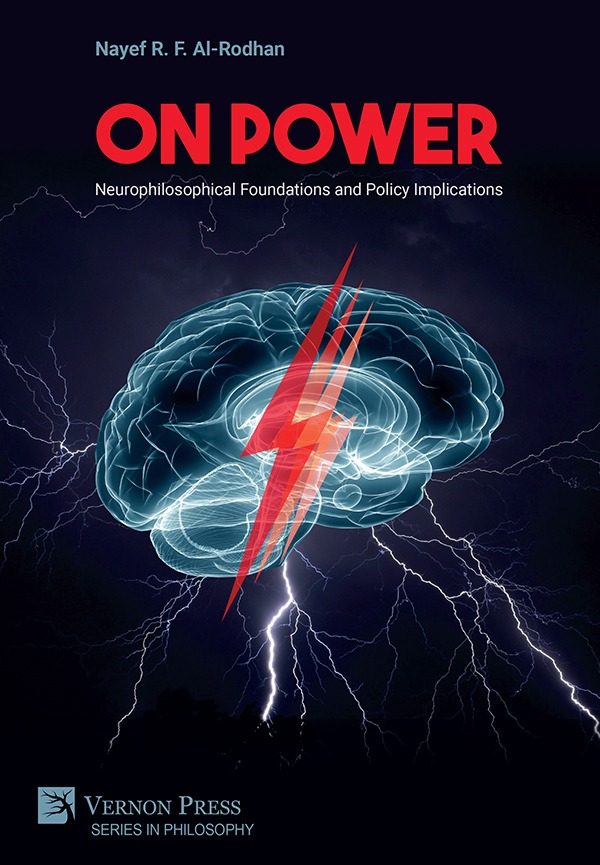A timely new book questions human authenticity, meritocracy, fairness, and the norms and regulations which will be required to guide our future course.
I was recently asked by a doctoral candidate for my thoughts on the phenomenon of what is usually dubbed “fake news”, but which I have always preferred to call “false news”, and the idea that an “alternative objectivity” is pulverising the traditional western philosophical view on objectivity (science, journalism, axiology).
- Winter on Fire: When Ukraine changed forever
- An attack on all of emerging Europe
- The Budapest Memorandum has done little to guarantee Ukraine’s sovereignty
It led me to consider – at some length – my own position as an editor, a journalist, and the media landscape in which we now operate.
I began by taking a step back to look at the current media ecosystem, both in terms of how news is produced and how it is consumed.
Over the past 20 years we have witnessed an unprecedented increase in the number of news outlets, and have seen online channels overtake both print and broadcast media as the primary source (for most people) of what’s going on in the world.
This, allied to what is now an unending, 24-hour news cycle, has created what I have long called “infinite spaces” – all which need to be filled. Filling these spaces requires an ever larger number of news stories, often simply press releases sent out by companies or organisations looking for publicity, and at other times entirely false stories put out by governments or by other actors working indirectly on their behalf.
These false stories are picked up by media outlets desperate to fill the “infinite space” and often go unverified.
Verification takes time and carrying out what was once a basic tenet of journalism can mean that another outlet, less worried about whether or not a story is factually correct, will fill the space quicker and grab the clicks and visitors all media outlets rely on.
This, I concluded, was the real problem: a deterioration in the standard of journalism caused by the race for clicks and visitors.
The importance of education
False news of course has always existed, but when print newspapers and broadcast media ruled the world, there was a limit to the amount of space that could be filled (adding even a single page to a newspaper had a real, often heavy, financial cost, often prohibitive; extending news broadcasts meant changing long-standing schedules). This meant that in democratic societies at least, every word had to be carefully verified.
Of course, sometimes, even the best newspapers got it wrong (think Hitler Diaries), but that was often a result of a very clever, well-planned and executed scam.
Now that the space is infinite, there is no cost involved in publishing unverified news: instead, the cost can be not publishing it (loss of visitors, revenue).
All this has created an ecosystem in which rogue operators can easily disseminate false news, half-truths or pure propaganda.
This is also a conclusion, one of many, reached by Professor Nayef Al-Rodhan in his groundbreaking and engaging new book, On Power: Neurophilosophical Foundations and Policy Implications, which sets out to explore the nature and future of power.
A neuroscientist, philosopher and geostrategist, an honorary fellow at St Antony’s College Oxford, Al-Rodhan draws on his vast experience to form a conceptual picture of power by integrating the findings of neuroscience with the broader implications of power in the era of digital connectivity and new technologies, especially “enhancement technologies”. The image of power that he develops is revelatory and yet feels instinctively right.
“The amplitude this trend of disinformation has taken recently is particularly reflective of the kind of societal transformation humanity is going through today,” he writes.
“Lies have always been part of politics, but today’s amplifying factor comes from technology, or rather technology’s power of dissemination. It has become common not only to manipulate the truth, but also to ignore the veracity of facts altogether. Ethical boundaries with regard to the nature of information have been effaced.”
The answer, he suggests, is education.
Citizens must act with vigilance regarding the information they receive, but this will only be possible if the education system is adapted for this particular intent.
“Curricula should be revised accordingly to include the development of critical analytic skills, not only at the university level, but also, and perhaps most importantly, during the primary and secondary learning processes.
“Ultimately, it is not only the quantity that should be seen as a threat, but the ability of the citizens to adapt, and develop the proper filters, if possible, very early on in their lives.”

The neurochemistry of power
A central and recurring theme of this accessible, incisive and highly provocative book – written before Vladimir Putin’s Russia invaded Ukraine – is its take on the underlying neurochemistry of power.
Power, especially absolute and unchecked power, Al-Rodhan writes, is highly intoxicating. Its effects occur at the cellular and neurochemical level. The primary neurochemical involved in the reward of power is dopamine, the same chemical transmitter responsible for producing a sense of pleasure.
In this highly readable work, Al-Rodhan posits that the pre-existing reward circuitry in the brain that is activated by power creates an addictive “high” in much the same way as drug addiction.
Like addicts, most people in positions of power will seek to maintain the “high” they get from power, sometimes at all costs – including at the cost of truth.
As he has argued in previous works, human beings are characterised by a state of “emotional amoral egoism”. As humans we are emotionally driven, equipped with a moral compass is highly malleable and heavily influenced by the circumstances we live in.
Technological advances – of which the ability to disseminate information, true or false, are just one example – are not going to stop, nor should they. Our willingness to compete and survive is stronger than any rational fear linked with innovation.
But by exploring the direction in which we are headed, it is also easier to draw potential lessons and consequences, which would ultimately help to prepare individuals in their quest for improvement.
But what Al-Rodhan ultimately suggests is that contrary to the expressions of power most widely associated with the 20th century – such as the development and eventual use of nuclear weapons during World War II – the future of power is likely to be more concerned with the improvement of human life rather than its destruction.
This, above all else, is the key revelation of On Power.
Too often, writers on power have provided only a shallow analysis of its causes, focusing far too much on its relational quality at the expense of insight into how it operates on an individual level. On Power is the first book to take power, in all its forms, seriously. The questions Al-Rodhan raises should have a significant impact on any future studies around the issue. Al-Rodhan’s admixture of hard science and pop culture reads as accessible prose while detailing complex philosophical issues with clarity and good humour.
Far too many treatises on the future (be it of power or anything else) portray a world devoid of human input, devoid of human agency, devoid, even, of humanity itself.
Professor Nayef Al-Rodhan refreshingly suggests that is not the case. At the very least, he suggests that it does not have to be that way.
And that is not false news.
Unlike many news and information platforms, Emerging Europe is free to read, and always will be. There is no paywall here. We are independent, not affiliated with nor representing any political party or business organisation. We want the very best for emerging Europe, nothing more, nothing less. Your support will help us continue to spread the word about this amazing region.
You can contribute here. Thank you.







Add Comment